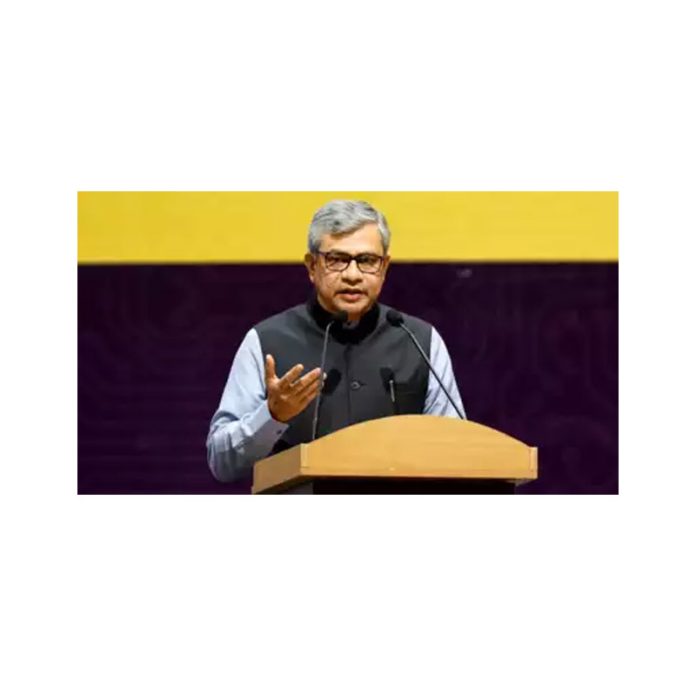NEW DELHI, Mar 8 : The government asked digital platforms to provide technical and business process solutions to prevent and weed out misinformation that can potentially harm society and democracy, Union Minister Ashwini Vaishnaw has said.
He added that a well-thought legal structure against deepfakes and misinformation will be finalised after the elections.
With poll season in India up ahead, digital platforms have upped election integrity efforts over the past weeks, while the government, through advisories and missives, has conveyed its zero tolerance for deepfakes and misinformation circulating on social media and other platforms.
“…Misinformation in a vibrant and diverse democracy like ours, can really be very harmful. It can be harmful for society, for democracy, for the electoral process, and it can really impact our future and harmony of the society in a big way.
“…So, we have been very categorical in our discussions with the platforms…They have taken many steps, they are continuously taking many steps, and immediately after the elections are over, we will certainly be coming up with very well thought-through legal structure…,” Vaishnaw told PTI in a recent interview.
Asked whether this will be done through the proposed Digital India Act (that will succeed the archaic IT Act 2000), Minister for IT and Communications Vaishnaw said, “Either as part of that or a separate law also can be thought of (on deepfakes and misinformation).
Last week, the government issued an advisory for social media and other platforms to label under-trial Artificial Intelligence (AI) models and prevent the hosting of unlawful content, just days after Google drew widespread criticism over its AI tool Gemini’s objectionable response to a question on Prime Minister Narendra Modi.
Nations across the world have raised their guard over the risk posed by AI bias, digital misinformation and falsehoods, as global experts warn that AI-generated deceptions could undermine electoral processes.
Earlier this year, the World Economic Forum (WEF) had warned that misinformation and disinformation supercharged by AI could pose great global risk, particularly with elections scheduled in major nations.
Nearly half of the world’s population heads to the polls in what is being dubbed as a bumper year of elections. Polls are scheduled in nearly 60 nations and regions across the world in 2024, including the world’s largest democracies India and the US.
Globally top technology companies like Meta, Amazon, Google, Microsoft, OpenAI and Anthropic have joined forces and pledged action to prevent harmful and deceptive AI content that could interfere in elections taking place across geographies this year.
“The platforms must start taking responsibility for what they publish. They are doing that in a great way, they have their own policies. Many of those policies are today leading to either taking down something or they have their own algorithms.
“So, the platforms have been very clearly told that they must come out with technical as well as business process solutions, by which the deepfakes and misinformation can be prevented from getting onto the platform,” Vaishnaw said.
Responding to a question on critics’ charge that provisions of new regulations and rules are leading to censorship and government overreach, the minister said that quite on the contrary, the entire digital legal framework – created after long-drawn, thorough consultation with all stakeholders – is “basically empowering people” and “making the internet safe”.
“It is making sure that platforms, which have such a big impact on our lives today, are under an obligation to protect our privacy. They have the obligation today because of this legal framework to make sure that users are protected.
“So, it is actually empowering our citizens and people, and making sure that personal information is protected. That is the attempt to this legal framework,” he said, citing the wide consultation that has preceded the crafting of Digital Personal Data Protection legislation as well as the Telecommunications Bill. (PTI)


